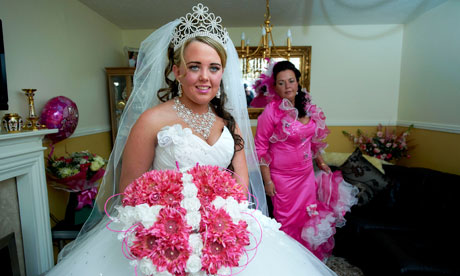
Celebrity-led documentaries such as Paul Merton in China (Channel 5) and structured reality shows such as The Only Way is Essex (ITV) garner headlines and gongs but, despite this, traditional factual programmes are also performing well and broadcasters want more.
Peter Fincham, ITV's director of television, points to primetime broadcasts such as the prison documentary Strangeways, which reached 6.35 million viewers last year, and this April's edition of Fraud Squad, which grabbed 4.9 million viewers. These are strong numbers for factual programming and Fincham likes them because they also represent good value for ITV.
"An audience of 5 million people watching a documentary made for £250,000 per hour is a more efficient way of buying an audience than spending three quarters of a million on a drama," says Fincham. "We guard our budgets carefully, so we are investing in factual, not saving in factual."
ITV factual budgets are up in 2012 and with good reason. "We're making factual programming because we want to, rather than just filling in quotas handed down by regulators," says Fincham.
And it's not just ITV that has re-committed to factual; hits such as Big Fat Gypsy Wedding (reaching 9.71 million viewers in November 2011) are also helping Channel 4's chief creative officer, Jay Hunt, keep factual shows at the top of her agenda. "Factual has benefitted enormously from the funding redirected post-Big Brother," she says. "Our plan is to continue to invest heavily in this area in all its guises."
Jeff Ford, director of programmes at Channel 5, says ratings for documentaries are healthy – for example, Caribbean Cops regularly reaches audiences of more than 2 million – but just as important is how factual shows are helping his channel to become more distinctive with viewers. "We have an identity now for documentaries and they're important because they've helped change people's perception of us."
Ford also doesn't want to be seen as "second to market" with structured reality shows; instead he'd much prefer to attract audiences with fast-turnaround docs that emerge from news stories such as the death of Whitney Houston or the Costa Concordia cruise ship disaster. "If we were going to do structured reality shows then we should have done it two years ago," he says. "We look at stories that people are talking about in the street and show documentaries about them, either co-productions or fully-funded."
Documentary makers are also using new techniques to keep the traditional factual genre fresh. The success of Channel 4's One Born Every Minute was at least partly due to its revolutionary, fixed multi-camera rigs for fly-on-the-wall style coverage of a maternity hospital. Viewers for the 12-episode series topped at 4.9 million.
User-generated content
However, Simon Dickson, creative director at Dragonfly, which produced the hospital documentary, says simply finding more places to put rig cameras is not the answer to greater factual audiences. "Our industry is now looking more at user-generated content to tell major stories like the Costa Concordia boat disaster. One minute the man in the street is using a basic high street video camera to shoot a home video and the next minute that footage is part of history."
Meanwhile, heavier competition for factual ratings is also coming from documentary-only channels such as Discovery and National Geographic. Hamish Mykura, National Geographic's London-based executive vice president and head of international content, is leading the channel's biggest ever budget commitment through the UK for internationally commissioned shows. Mycura, who joined National Geographic from Channel 4 in March 2012, will commission up to 100 hours of new programming this year. "We want significant series that will lift our audience share and budgets for those programmes will compete with Channel 4 and the BBC."
Factual programming's commercial future is best summed up by Fincham's recent decision to return the latest version of Michael Apted's classic Up series to ITV last month. The series, which has been following the same group of children into adulthood for nearly 50 years, was originally made by Granada for ITV but the last three series have been screened on the BBC.
"Previously, ITV said 'we don't want this, it's no longer what ITV is about'. But I wouldn't let it go to the BBC at gunpoint," says Fincham. "It's one of the proudest things ITV has ever done."

